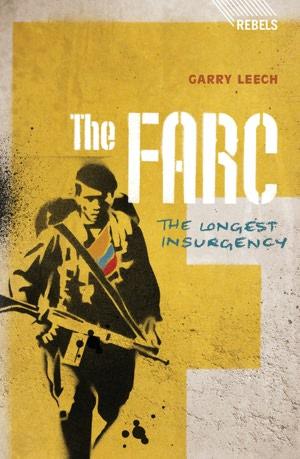Last Sunday, dozens of Mexican activists led by poet Javier Sicilia crossed into the US at San Diego to begin a weeks-long Caravan for Peace and Justice that will take them more than 6,000 miles through 27 cities in a bid to focus attention on the drug war's terrible toll in both countries. They were met there by representatives of the more than 100 US organizations that are joining and supporting the Caravan as it makes its way toward Washington, DC.
"Our purpose is to honor our victims, to make their names and faces visible,"
Sicilia said. "We will travel across the United States to raise awareness of the unbearable pain and loss caused by the drug war -- and of the enormous shared responsibility for protecting families and communities in both our countries."
But it's not just about honoring the victims of the drug war;
the Caravan also explicitly seeks policy changes on both sides of the border, and not only to drug policy. These policy areas and the Caravan's recommendations include:
Drug War policies: We propose the need to find a solution, with a multidisciplinary and intergenerational approach that places individuals, and their welfare and dignity, at the center of drug policy. We call on both the Mexican and the U.S. community to open and maintain a dialogue about alternatives to Prohibition based on evidence, and which is inclusive in its considerations of the diverse options for drug regulation.
Arms trafficking: We propose that the President of the United States immediately prohibit the importation of assault weapons to the United States. Assault weapons are often smuggled into Mexico, and have also been used too many times against innocent civilians in the US. We propose giving authorities effective regulatory tools and adequate resources to halt arms smuggling in the border regions, especially in border states like Arizona and Texas.
Money laundering: We call for governments on both sides of the border to take concrete steps to combat money laundering. We propose that financial institutions be held accountable for preventing money laundering through increased government surveillance, investigations, fines and criminal charges. We also call for the Treasury Department to immediately implement Congress’ 2009 call to close the “prepaid/stored value cards” loophole.
US foreign aid policy: We call for a change from the United States' "war" focus to one of human security and development that contemplates promoting the healing of Mexico's torn social fabric. We propose the immediate suspension of US assistance to Mexico's armed forces. The "shared responsibility" for peace that both governments share must begin with each country complying with its own respective national laws.
Immigration: We call for a change in the policies that have militarized the border and criminalized immigrants. These policies have generated a humanitarian crisis driven by unprecedented levels of deportations and incarceration of migrants. In addition, these policies have also inflicted immeasurable environmental damage. We call for protecting the dignity of every human being, including immigrant populations that have been displaced by violence who are fleeing to the US seeking safe haven and a better life.
The Caravan is a natural outgrowth of Sicilia's Mexican Movement for Peace and Justice with Dignity (MMPJD), which he formed after his son and several comrades were kidnapped and murdered by drug cartel gunmen in Cuernavaca in March 2011. It is designed to put names and faces on the estimated 60,000 dead, 10,000 disappeared, and 150,000 displaced by the prohibition-related violence pitting the so-called cartels against each other and the Mexican state.
In Mexico, the MMPJD struck a deep chord with a population increasingly angered and frightened by the often horrific violence raging across the country. Caravans organized by the MMJPD crisscrossed the country last year before bringing 100,000 people to mass in Mexico City's huge national plaza, the Zocalo in June. The mass outpouring of grief and anger convinced President Felipe Calderon to meet with Sicilia, who brought along photos of some of the dead depicting them as happy, smiling human beings.
"The powers that be were trying to tell us that all those who were dying were just criminals, just cockroaches," Sicilia explained. "We had to change the mindset, and put names to the victims for a change."
On last Sunday, Sicilia and the Caravan were met in San Diego by about 100 supporters from national groups such as the Drug Policy Alliance, Global Exchange, Law Enforcement Against Prohibition, the NAACP, the Washington Office on Latin America, and, as will be the case across the country, local immigrant rights, civil rights, religious, and drug reform groups.
"This movement brings together activists from both of our countries to shed light on the policies that have failed our families, neighbors, and nations," said Sicilia. "United, we will raise our voices to call for an end to a war on drugs that allows entire communities to become casualties, and we will demand a shift in attention to poverty and the lack of economic opportunity that helps breed the criminality."
"What we are trying to do is raise the level of conversation around this topic," said Global Exchange's Ted Lewis, one of the caravan's organizers. "We're trying to have a bi-national conversation and impact."

Javier Sicilia and Sheriff Joe Arpaio (caravanforpeace.org)
By last Friday, the Caravan had reached Las Cruces, New Mexico, after first stopping in Los Angeles, Phoenix, and Tucson. In Los Angeles,
the Caravan wooed Hollywood, seeking support from the film community as it seeks to shift public opinion against prohibitionist drug policies that wreak havoc in both countries.
"What unites us is grief for what Mexico has lost, which is peace," said Mexican filmmaker Alejandro Gonzalez
Inarritu, the Oscar-nominated director of "
Biutiful" and "Babel," who was among the Hollywood stars greeting the Caravan.
In Phoenix on Thursday,
Sicilia and the Caravan had an
unexpected encounter with Maricopa County Sheriff Joe Arpaio as they trekked to one of
Arpaio's jails to see what the drug war looks like on the US side of the border. The feisty sheriff, who is notorious for his treatment of prisoners and anti-immigrant politics, got an earful from
Sicilia, but didn't exactly roll over.
Sicilia chided
Arpaio over the flow of American weapons into Mexico and the hands of the cartels and asked him to do a better job controlling the traffic, to which
Arpaio retorted, "Control the flow of drugs."
Sicilia also urged
Arpaio, who is under Justice Department investigation over his treatment of prisoners and illegal immigrants, to "be more human" in the way he handles people under his control. "We don't come in war but in peace to tell you that you have half of the responsibility for the war that there is in Mexico," he said. "I ask you whether treating migrants like dogs is a correct policy."
"I don't run the jails,"
Arpaio replied.
[Ed: As noted above, Arpaio does run jails, and is being investigated for how prisoners are treated in them.]
Sicilia urged
Arpaio to visit Mexico, but
Arpaio demurred, saying that the cartels had a price on his head.
The Caravan for Peace is now less nearly two weeks into its journey across the county to Washington, DC. Organizers have not said yet whether they will seek a meeting with President Obama, but are planning on meetings on Capitol Hill. Between now and then, they hope the Caravan will succeed in raising consciousness among Americans about the toll of the drug war on both sides of the border. Whether policymakers will listen is an open question, but the media is certainly listening. Google lists 145 news articles about the Caravan so far. That's a good start.
back to top
special to Drug War Chronicle by Clarence Walker, [email protected]

No warrant needed for listening in on drug suspects (wikimedia.org)
In Illinois, the war on drugs has delivered yet another blow to citizens' privacy rights. In the Land of Lincoln, it is illegal for citizens to record or videotape Illinois police in public, yet the Illinois legislature last month gave police the right to engage in those very same activities -- without a warrant -- during drug investigations.
On July 24, citing police safety and the need for quicker drug arrests,
Gov. Pat Quinn (D) signed into law
House Bill 4081, which exempts police doing drug investigations from the provisions of the state's eavesdropping law. It also allows them to audio or videotape drug suspects without having to get a warrant.
Under the bill, sponsored by state Reps.
Jehan Gordon (D-Peoria) and William
Haine (D-Alton), the normal requirement of a warrant based on probable cause is replaced by the lower and constitutionally-suspect requirement of only reasonable cause. In a further victory for the imperatives of the drug law enforcement, police will be able to bypass judicial scrutiny of their need to record someone and instead will merely have to obtain prior approval from a prosecutor to listen in on suspected drug conversations.
"The world of illicit drugs moves very quickly," explained Terry Lemming, an Illinois State Police commander, during
a May hearing on the bill. "It's very difficult to find a judge in the middle of the night. I didn't see the sense in spending all these hours drafting a court order when I could have already gone out and arrested a guy selling on the corner -- and that's the feeling of many narcotic officers."
Riverside, Illinois, Police Chief Tom
Weitzel told the Chronicle the new law was desperately needed.
Weitzel is a member of the
Illinois Association of Chiefs of Police, who, along with his comrades, fought for 14 years to get the law passed.
"The law is critical to undercover narcotic officers for several reasons," he wrote in an email. "First, it's an officer safety issue because many times backup teams are blocks away when drug transactions either take place in cars, within homes or apartments, or just on the streets."
Weitzel even went as far as to say the law would benefit defendants, too.
"The legislation will help secure better evidence for prosecutors and protect suspects from police misconduct, including the fact the same audio recordings made by police can be used by defendants who claim entrapment," he argued.
But while the bill is now law, not everyone is happy about it. Rumblings of discontent have been heard from civil rights advocates, legal experts, and opposing lawmakers.
State Sen. Dan
Kotowski (D-Park Ridge) argued during hearings on the bill that if judicial responsiveness is a problem for police, then the fix would be to make judges more available for warrant requests -- not to take them out of the loop.
"I'm struggling with taking away where you'd go to get a judge's approval to have a wiretap," he said.
Under the new law, judges are not completely frozen out of the process, but their role is limited to determining whether evidence gained from a wiretap can be admitted at trial.
"I understand the desire to enhance law enforcement tools to deal with crime, and I am certainly on the side of law enforcement, but it's a very slippery slope we go down when we start removing safeguards that has historically exist to make sure certain tools not be used inappropriately," state Sen.
Kwame Raoul (D-Chicago) told the
Chicago Tribune.
State Sen. Michael Nolan (D-Elgin) also weighed in on the matter. Nolan's dissatisfaction with the bill is the fact the new law deals with reasonable cause as the standard for having private conversations recorded, as opposed to probable cause, which is the standard bearer for the integrity of the law.
"This legislation does not base that determination of admissibility on 'probable cause,'" he said. "This is basically upending the Fourth Amendment."

ACLU of Illinois' Ed
The
ACLU of Illinois had a similar reading. Its spokesman, director of communications and public policy Ed
Yohnka, told the Chronicle the new law was not only constitutionally suspect but also unnecessary.
"In all the years that Illinois law enforcement worked for this change, they never been able to point to a particular need for this new power. In many years, we have seen drug related arrests in Illinois rise over a yearly period without this new authority -- which begs the question: is this power really necessary?" he asked.
"The legislature should have left things alone because judges act as a neutral third party and they can already act fast enough,"
Yohnka continued. "Our personal conversations are the most intimate we have and government should make certain it is necessary to intrude before engaging in eavesdropping."
For
Yohnka, the new law doesn't pass the smell test. He noted that current law already allows police to wiretap or do audio recording in an emergency and suggested the real intent is to allow police to more easily listen in on targets not directly involved with drug trafficking, targets merely associated with a prime suspect.
"The current law permits an officer to conduct warrantless wiretapping or audio-recording if police or citizens were in imminent danger,"
Yohnka said. "The creation of this new authority suggests this is not about protecting police officers."
What makes the new law all the more galling to some is that police, who can now wiretap drug suspects without a warrant, have a habit of arresting members of the public who do the same thing to them. Under current Illinois eavesdropping law, citizens have the right to video a police officer making a public arrest, but a person cannot record an audio of police without permission.
That law is now under review by the state's appellate courts in a case arising from the 2009 arrest of self-employed artist Christopher Drew. When police arrested him for selling art on the street without a proper permit, they discovered him recording the encounter. They then charged him with felony eavesdropping for recording them without their permission.
Drew went public and fought to have the law declared illegal and earlier this year he won a partial victory when Circuit Court Judge Stanley Sacks declared it unconstitutional. Sacks ruled that the law criminalized innocent conduct and violated due process. But state prosecutors appealed the ruling and vowed to keep it on the books.
One standard for police, another for citizens. Police can record private conversations without a warrant, but citizens face years in prison if they record police in the line of duty -- at least until the Illinois courts definitively rule that portion of the eavesdropping law unconstitutional. Meanwhile, look for legal challenges to the new law allowing police to bypass judges and the warrant process in their never-ending war on drugs.
back to top
The FARC: The Longest Insurgency, by Garry Leech (2011, Zed Press, 178 pp., $19.95 PB)
The FARC (the Spanish-language acronym for the Revolutionary Armed Forces of Colombia) are considered terrorists by the US, Colombia, and the European Union, and narco-terrorists at that because of their participation in Colombia's extremely profitable coca and cocaine trades. They are criticized for their penchant for kidnapping members of the upper and middle classes, for their sometimes indiscriminate use of weaponry, and other human rights violations.
They are also frequently dismissed as both bearers of a dead ideology -- Marxism-Leninism -- and of degenerating from it into nothing more than another well-armed drug gang. And less than five years ago, it seemed as if the decades-long peasant-based guerrilla army was on its last legs. In 2008, the Colombian military finally managed to kill a member of the
FARC Secretariat, another was killed by his own security guard, and the guerrillas' long-time leader Manuel "
Sureshot"
Marulanda died of old age.
In another coup, the Colombian military rescued a group of long-held, high-profile
FARC captives, including abducted presidential candidate Ingrid
Betancourt and three American contractor pilots. And the
FARC was on the defensive militarily, being pushed back into its strongest rural redoubts by a Colombian military and law enforcement apparatus pumped up on billions of dollars of US anti-drug and, after 9/11, anti-terrorism (counter-insurgency) assistance.
Plan Colombia has also managed to put a dent -- the size of which is debatable -- into the country's coca and cocaine trade, but it remains substantial and hasn't gone away. The
FARC hasn't gone away, either. In fact, it is killing more Colombian soldiers and police than ever, more than it did when the guerrillas were at the peak of their strength around the turn of the century.
In its recently-released "Country Reports on Terrorism," the State Department reported that
FARC attacks against security forces were up substantially last year, and there's been no sign of a let up this year. And despite the killing of the
FARC's top leader, Alfonso
Cano, last November, the
FARC and Colombia's other leftist guerrilla army, the
ELN (Army of National Liberation), "continue to pose a serious threat to Colombia's security," the State Department said.
In his
eponymously-titled primer on the
FARC, longtime and on-the-ground observer of Colombian affairs journalist Garry Leech paints a far more nuanced picture of the world's longest-running insurgency than the caricature described in the opening paragraphs. He provides the historical context of political violence and extreme -- and still-growing -- inequality out of which emerged peasant self-defense militias in the wake of La
Violencia in the
1950s, militias that in 1964 would become a Marxist-Leninist politico-military organization whose aim was to overthrow the Colombian capitalist state and replacement it with a communist one.
That's right, these guys were old school. And, Leech shows, they still are. As
passé and
outré as it may seem to North American readers, those AK-47-toting bearded guerrillas in fatigues in the jungle are still out there and they still want to make the revolution. Unlike other actors in the illicit drug trade, for the
FARC, the profits of prohibition are a means to an end -- financing the revolution -- not an end in themselves.
FARC leaders live in camps in the jungle, not in fancy mansions. Their drug money goes for war materiel, not fast cars and exotic animals.
For parts of the
FARC's peasant base -- and it is very much, almost exclusively, peasant-based -- Leech shows, coca growing is the means of making a living, often the only means of making a living. As Marxist revolutionaries, who tend toward the dour and puritanical, the guerrillas don't really approve of drug crop production, but they argue that their base needs it, and they are happy to tax and regulate it.
"They work with marijuana and coca leaf because they don't have any work," says
FARC commander Simon Trinidad. "This problem is caused by the economic model of the Colombian state, and the Colombian state has to fix that problem. We are the state's enemy, not their anti-narcotics police."
They may also dabble in cocaine production and facilitate distribution within Colombia, always claiming their cut in taxes, but despite repeated efforts, the US has been hard-pressed to make any international drug trafficking charges stick against high-ranking
FARC members. Trinidad himself was captured and taken to the US, where the Justice Department twice failed to convict him of drug trafficking, although it did manage to convict him on kidnapping charges and he now sits in a federal prison.
Interestingly, Leech shows how the drug trade has been a two-edged sword for the
FARC. On the one hand, drug profits allowed the
FARC to expand dramatically, especially in the
1990s, when it grew to its greatest size, sent hundreds of fighters at a time on offensive attacks against the Colombian police and military, seized effective control of vast swathes of national territory, and appeared poised for a final push toward overthrowing Colombian capitalism.
On the other hand, the
FARC's rapid, coca profits-based expansion in the
1990s led to a lessening of ideological rigor in the ranks, and its success at territorial expansion meant that in newly-controlled areas, the organic links with the peasant base forged over decades of communal struggle were not present. And make no mistake about it: In its core areas, where it has been in control for years, the
FARC has been putting its socialist vision into action in concert with its base. The
FARC provides core functions of the state that the Colombian state never has in these remote areas: a justice system, a health care system (whose facilities the government bombs), infrastructure (whose bridges the government bombs), municipal services through taxes on commodities like beer, and schools.
But it wasn't like that in the areas newly under
FARC control. There, the guerrillas had no organic political presence, only a military one, and in the eyes of locals, they were just another of too many groups of men with guns. And their expansion was ringing alarm bells in Washington, as well as Bogota. Thus, Plan Colombia.
The US had done it before, and not so long ago. In the
1980s, $4 billion in US assistance managed to blunt the rise of the
FMLN in El Salvador, and a 1989 truce
defanged the leftist revolutionary movement, turning it into a player in El Salvador's liberal -- the
FARC would say bourgeois -- democracy. The Salvadoran left won the chance to participate, but only at the price of giving up its dream of a real social revolution. (Leech notes that since the end of the Central American civil wars on the
1980s, the violence generated there by social inequality hasn't gone away; it has only been displaced from the sphere of politics to that of criminality.)
As in Central America in the
1980s, so in Colombia in the last decade. The US has thrown billions of dollars at stopping a social revolution in Colombia -- overtly aiming at the
FARC (and not just the drug trade) since 2002 -- and it has worked. Historically, we will probably look back and say the
FARC hit its high water mark at the turn of the century, but a decade later, it's still going strong. That's because, Leech argues convincingly, the Colombian state has been unwilling to entertain reforms necessary to alleviate the inequality, suffering, and lack of access to opportunity of millions of its poorest citizens.
Rather than address the nation's economic model and its role in the global economic system as part of a negotiated settlement, successive Colombian governments have instead demanded the demobilization of the
FARC as a precondition to any negotiations. The
FARC has made it clear that is not going to happen. The
FARC has been around for nearly a half-century now; will it be around for another? Quite possibly.
[Update: In late August, President Santos announced that his government had begun preliminary discussions with the FARC about restarting peace talks. Time will tell whether either side will be willing to make the concessions necessary for the process to move forward.]
In the context of the Colombian civil war, it's probably a good thing for drug reformers to think for a moment about Colombian President Santos. He wins kudos on the cocktail circuit for his talk about talking about drug legalization or alternatives to prohibition -- he's even received them here. But he is also the hand-picked successor to the hard-line Alvaro
Uribe, the leader of
a government that sprays pesticides on poor peasants to eradicate their crops, while providing no effective alternatives, and which continues to prosecute the drug war full speed ahead -- a government that was in bed with the rightist
paramilitaries responsible for atrocities that make the
FARC look mild-mannered (the "
para-politics" scandal currently ensnaring member after member of the Colombian congress. This is a government whose policies have created one of the largest internally displaced populations on the planet.
The FARC is a most excellent corrective for what passes for coverage of the
FARC in most North American media sources, and a serious study of the group's origins, politics, problems, and prospects. Leech is sympathetic, but he's no apologist. If you're serious about learning about what's going on in Colombia, you need to read him. Mao's ghost still stalks the land there.
back to top
The feds strike again in California, this time in Orange County, and meanwhile, the battle over the LA dispensary ban heats up. There's plenty more news, too. Let's get to it:
California
Since mid-August,
signature gatherers have been hitting the streets in Los Angeles in an effort to collect 27,400 voter signatures to put on the ballot a referendum to repeal the recent ban on dispensaries. They have about 10 more days to go, and if they succeed, the referendum would go before voters in March. The more immediate effect would be a temporary suspension of the ordinance. Dispensaries in the city have until September 6 until they are supposed to shut down.
Last Wednesday,
San Francisco Mission District property owners asked the feds to shut down a dispensary that hasn't even opened yet. Those owners of "white linen" restaurants and family-oriented businesses have asked the Justice Department to close down the
Morado Collective, even though the Planning Commission approved the dispensary's permit at a hearing the same day. The Mission Miracle Mile Business Improvement District had its president, local realtor James
Nunemacher, write a letter to US Attorney Melinda Haag urging her to shut it down because it "is incompatible with the family shopping that predominates the immediate area in the daytime and the dining/entertainment venues that are active in the evening." The
gentrifiers have spoken.
Last Thursday,
patients and supporters filed a lawsuit seeking to overturn the LA ban. The Patient Care Association and 11 individual patients are seeking an injunction to block the city from implementing the ban. They argue that California law preempts the city's ban, that it violates dispensary owners' rights to due process, and that it violates their right to freely assemble and associate to cultivate medical marijuana.
Also last Thursday,
Butte County staff released a draft of the proposed new medical marijuana cultivation ordinance. It would ban outdoor cultivation and set limits on the amounts that could be grown indoors based on the size of the parcel. On lots of an acre or less, the grow area could not exceed 50 square-feet. On lots one to five acres, the allowable grow area is 150 square-feet. There is no size limit on lots five acres or larger, but a maximum of 99 plants could be grown. The ordinance includes limits on how powerful indoor grow lights can be and requires a ventilation and filtering system that doesn't allow the smell of the pot outside the building. It also bans growing within 1,000 feet of schools, churches, parks, child care centers, and other youth-oriented facilities.
Last Friday,
a Lake County judge granted a preliminary injunction barring enforcement of the county's recently adopted interim cultivation ordinance. The injunction is good until January 1. It allows all qualified people and collectives growing marijuana in conformity with state law at the time the county adopted its interim medical marijuana cultivation ordinance. Four people sued the county after the Board of Supervisors adopted the ordinance on July 9. It limited the number of marijuana plants allowed for outdoor cultivation and banned commercial growing as well as growing on vacant lands. On Tuesday, the Board of Supervisors voted to extend the interim ordinance for another 45 days anyway.
On Tuesday,
federal prosecutors targeted more than 60 dispensaries in Orange County for closure by filing three asset forfeiture lawsuits and sending threat letters to the dispensaries. That brings the number of dispensaries targeted for closure in the Central District of California to more than 300. In all, 66 warning letters were sent to marijuana dispensaries in Anaheim and La
Habra. Some have closed recently, but federal authorities said 38 remain open. As part of the offensive, DEA agents raided two Anaheim dispensaries.
Colorado
Last Friday,
a state court held that federal law trumps the state's medical marijuana law. The ruling came in a case pitting a grower against a dispensary. The grower sought payment for marijuana that had already been delivered, but Arapahoe County District Judge Charles Pratt ruled for the dispensary. In his opinion, he held that since all marijuana sales are illegal under federal law, the contract between the grower and the dispensary was null and void. Later in the same ruling, Pratt wrote that "any state authorization to engage in the manufacture, distribution or possession of marijuana creates an obstacle to full execution of federal law. Therefore, Colorado's marijuana laws are preempted by federal marijuana law." Because the ruling is by a district court judge, it is not binding, but it has the medical marijuana community concerned.
On Monday,
the Denver City Council approved a ban on all outdoor advertising for dispensaries. The vote came after a public hearing last week where medical marijuana advocates were split over the issue and council members voiced strong support for it. The council killed an alternate, more limited plan that would have blocked outdoor ads within 1,000 feet of schools, day care facilities, and parks. Dispensaries can still advertise on their buildings and can still place ads in newspapers, magazines, or online, and they can display their logos at charity events they sponsor. The city had been inundated with dispensary flyers and young men twirling large cardboard arrows advertising "Eighths for $25" and the like.
Maine
Last Monday,
state officials held a public hearing on proposed new cultivation rules. The rules will impose restrictions on where and under what conditions patients or caregivers can grow their own medicine. Patients, dispensary operators, growers, and advocates objected to various portions of the proposed rules. The last day for public comment was Wednesday.
Michigan
Last Thursday,
the agency overseeing the state's medical marijuana program said it could be up and running by this fall. The Michigan Department of Licensing and Regulatory Affairs said its review panel for adding new qualifying medical conditions is just about set, but patient advocates are skeptical, saying the agency is at least two years behind on making recommendations on requests to add new conditions.
Washington
Last Friday,
the state Department of Revenue began doing audits of dispensaries, escalating a battle over whether they should be collecting tax revenues for the state. The department has told dispensaries since 2010 that they must remit sale taxes on their transactions, and 50 dispensaries have registered with the department to do so. But the department believes there are other dispensaries out there that haven't registered, and now it's going after them. Some dispensary operators and defense attorneys argue that by paying state taxes, dispensaries are incriminating themselves in the federal crime of marijuana sales.
Over the weekend,
medical marijuana advocates may have skirted state election laws at Hempfest by handing out fliers against the I-502 legalization initiative. Dozens of medical marijuana businesses used
Hempfest to lobby against I-502, but one of them may have violated election laws by handing out anti-I-502 posters that failed to say who had paid for them.
On Tuesday
, the owners of two dispensaries pleaded guilty to federal marijuana trafficking charges.
Brionne Keith
Corbray, owner and operator of three GAME Collectives in White Center, Northeast Seattle, and West Seattle, copped to conspiracy to distribute marijuana. Craig
Dieffenbach and Jing Jing Mu, owners of the Seattle Cannabis Cooperative, copped to conspiracy to distribute and money-laundering charges. All admitted in their plea agreements to selling marijuana to people who were not patients. Conspiracy to distribute marijuana is punishable by up to 40 years in prison and a $250,000 fine. Conspiracy to launder money is punishable by up to 20 years in prison.
back to top
An Arkansas initiative to legalize medical marijuana appears likely to qualify for the November ballot after proponents handed in an additional 74,000 signatures last Monday. The group, Arkansans for Compassionate Care, needs 62,507 valid voter signatures to qualify and already has more than 36,000 qualified from an earlier signature hand-in.
That means only about 26,000 of the 74,000 signatures handed in Monday need to be found valid for the initiative to qualify for the ballot. Signature gathering campaigns typically see somewhere between a quarter and a third of signatures handed in invalidated, so the Arkansas initiative would appear to be well-placed to make the November ballot.
Initiative proponents suffered an unusually high invalidation rate of more than 50% with their first hand-in, but the group's treasurer, Melissa
Fults, told the
Associated Press they had learned more about the process after handing in its first batch of signatures. For the second round of signature gathering, the group made sure volunteers and paid canvassers were carefully checking that signees were indeed registered to vote.
"I don't think there's much of a chance we won't" qualify for the ballot,
Fults said.
The new batch of signatures must now be verified by the secretary of state's office. It had 10 days from last Monday to rule on whether the initiative qualifies.
The
Arkansas Medical Marijuana Act would allow patients suffering from specified diseases or medical conditions to use marijuana with a doctor's recommendation. It envisions a system of state-licensed nonprofit dispensaries, and would allow patients or their caregivers to grow their own only if they are not within five miles of a dispensary. In that case, patients could grow up to six flowering plants. Patients could possess up to 2 ½ ounces of marijuana.
back to top
A bill designed to reduce drug overdose deaths by providing some legal protection to people who witness them and summon medical assistance has been approved by the state legislature and now awaits the signature of Gov. Chris Christie (R). The bill passed the Senate Monday on a 21-10 vote; it had cleared the Assembly back in May.

The bill,
Assembly Bill 578, also known as the Good Samaritan Emergency Response Act, would provide limited legal protection against drug possession charges for people who witness an overdose and call 911. It is aimed at reducing drug overdose deaths by reducing the fear of arrest for those might call for assistance.
According to the Centers for Disease Control and Prevention,
drug overdoses are now the leading cause of accidental death, replacing automobile accidents. More than 27,000 people died from drug overdoses in 2007, most of them from prescription opiates, either by themselves or in combination with other drugs, including alcohol.
Many drug overdose deaths occur in the presence of others and take hours to occur, meaning that there is time and opportunity to call for help. But strict enforcement of drug possession laws against would-be Samaritans discourages some from making that call.
Advocates are applauding the passage of the life-saving bill.
"Calling 911 should never be a crime. Our current policies focus on punishment and drive people into the shadows and away from help," said Roseanne
Scotti, New Jersey State Director of the
Drug Policy Alliance. "Saving lives should always take priority over punishing behavior. A Good Samaritan law will encourage people to get help."
"When a life is on the line we can ill afford to waste time weighing the consequences of calling 911 or deciding whether or not to be truthful about what substance was used to overdose," said Senate bill sponsor Sen. Joseph Vitale (D-Middlesex). "By narrowly eliminating the criminal consequences one might face after calling 911 to report an overdose, I hope to diminish any hesitation one might have about doing the right thing."
"I and my family are so grateful to the senate for passing this life-saving legislation," said Patty
DiRenzo, whose son Salvatore died of an overdose at age 27. "We, and the other families who have lost loved ones to overdose, will be advocating with
Gov. Christie to urge him to sign this bill. It's extremely important that we prevent future overdose deaths and spare other families the grief that mine has endured."
If
Gov. Christie signs the bill into law, New Jersey will become the ninth state to enact a Good Samaritan law. The others are Colorado, Connecticut, Florida, Illinois, New Mexico, New York, Rhode Island, and Washington. Similar legislation is pending in several other states.
back to top
Members of the Johnson County Drug Task Force conducting an undercover operation at a run-down trailer park just outside the Iowa City city limits shot and killed one man and wounded another last Thursday evening. Ivan Carl
Hardemon, 24, becomes
the 43rd person to die in US domestic drug law operations so far this year.
Police are releasing few details of what actually happened, but a
Department of Public Safety press release said two state agents with the Division of Narcotics Enforcement assigned to the task force were conducting an undercover operation at a trailer in the park when "an altercation ensued and shots were fired," leaving
Hardemon dead and another man,
Demarco Dudley, wounded.
The passive-voice press release very carefully does not say whether
Hardemon or Dudley fired shots, nor does it make any mention of weapons or drugs recovered at the scene. Police said they would not release more information until their investigation is completed.
The shooting left neighbors uneasy. Patty Krueger, who lives nearby, told the Iowa City Press-Citizen she no longer felt safe in the neighborhood.
"I have kids at home, I don't like the fact that the neighborhood's been disrupted like this," Krueger said. "I've felt safe out here for the last few years and now it doesn't seem like it's safe anymore."
Update: In a later report, undercover police said
Hardemon and Dudley attempted to rip them off when they showed up with a large sum of money to buy drugs and gunfire was exchanged.
back to top
In an unusual step, the New Orleans police officer who shot and killed an unarmed young man during a March drug raid aimed at small-time marijuana distribution has been indicted on manslaughter charges. Officer Joshua Colclough was indicted last Thursday and turned himself in for booking the following day.

Wendell Allen (family photo)
shot and killed Wendell Allen, 20, as he served a search warrant at Allen's
Gentilly residence.
Colclough encountered Allen at the top of a stairway in the house and shot him once in the chest. No weapon was found.
Allen was the
15th person to die in US domestic drug law enforcement operations so far this year. The death toll is now at 42 and will go to 43 later today when we post an article about the latest drug war killing, this one in an Iowa City drug raid late last week.
No officers have been indicted in any of those deaths. And despite drug war deaths at the rate of more than one a week in recent years, no police officers have been indicted in any of those incidents since
an Ohio police officer was indicted in the killing of an unarmed woman and the wounding of the baby she was holding during a January 2008 SWAT raid. That officer was indicted on two misdemeanor counts of negligent homicide and negligent injury, but later acquitted.
The unusual indictment in the Allen killing came after the shooting generated outrage in the city, including threats from the Louisiana Justice Institute to sue the city if it did not release information about the case and take it to a grand jury. It also comes at a police department that just last month
agreed to comprehensive reforms under the eye of the US Justice Department as a result of a pattern of misconduct in the department.
Officer
Colclough spent the weekend in jail under a $300,000 bond. A bail reduction hearing was set for Monday.
back to top
Three more people have died in drug war-related incidents in recent days, including a police officer. They are the 40th, 41st, and 42nd persons to die in US domestic drug law enforcement operations so far this year.
Last Saturday,
NYPD officers shot and killed Darius Jennings, 51, in an incident that began when they spotted him apparently smoking marijuana in Times Square. Jennings became agitated when police approached and pulled out a knife. He refused orders to drop the weapon and began backing down the street for seven blocks, followed by a growing contingent of police and spectators. Police pepper-sprayed Jennings repeatedly before they said he lunged at them and two officers shot him a total of 12 times.
Last Sunday,
a Las Cruces, New Mexico, man died two days after swallowing a plastic bag containing cocaine as he was being booked into the Dona Ana County Jail.
Hemilo Salcedo, 57, had been arrested on a warrant charging him with two counts of drug trafficking and was changing from civilian clothes to a prisoner's uniform when a jailer noticed part of a plastic bag protruding from his rectum. The jailer told him to remove it himself, and when
Salcedo did, he immediately put it in his mouth and swallowed it. The jailer ordered him to spit it out, then noticed he was choking and attempted unsuccessfully to dislodge the baggie.
Salcedo died at a local hospital two days later. Police said the bag contained three grams of cocaine and may have contained more.
On Monday night,
Puerto Rican police officer Wilfredo Ramos Nieves was shot and killed as he took part in a drug raid with six other officers in
Bayamon. The 15-year veteran was shot twice when police saw an armed man and attempted to detain him. The shooter opened fire instead, fatally wounding Ramos
Nieves before being shot and wounded by police. He and a companion fled, but were later arrested. Ramos
Nieves is the third Puerto Rican officer to be killed in the line of duty this year and the second one killed because of drug law enforcement.
back to top
It never stops, and there are so many varieties of law enforcement misdoing. Let's get to it:
In Wagner, South Dakota,
the Wagner police chief resigned August 8, one week after he first appeared in court over accusations he covered up his girlfriend's methamphetamine use. Jim Chaney had been suspended since being indicted a week earlier on one count of misprision of a felony. Chaney went down after his girlfriend was arrested for possession of a controlled substance in mid-July and told investigators he had stored used needles for her at the police station. The case comes as the
Yankton Sioux community in Wagner is still reeling over the death of two-year-old from ingesting meth earlier this summer.
In Bridgeport, Connecticut,
two Bridgeport narcs were suspended last Thursday after testing positive for drugs. Now, the entire Narcotics and Vice Unit faces a possible shutdown after Tactical Narcotics Team members Ivan Clayton and David
Uliano tested dirty. They have been suspended with pay. Meanwhile, the police chief, the head of the narcotics unit, representatives of the city attorney's office, and police union reps are holding meetings about how to proceed. One option is to disband the entire dope squad and let State Police handle those investigations.
In Hammond, Indiana,
a Gary police officer was arrested last Tuesday on charges he was involved in drug sales and illicit gun purchases. Officer David Finley, 31, went down after a weeks-long investigation by the FBI and the Gary Police Department, which started after he was involved in a car crash and appeared intoxicated. No word yet on specific charges.
In Cincinnati,
a North College Hill police officer was indicted Tuesday on federal marijuana trafficking conspiracy charges. Officer Bryon
Roos was one of 11 men indicted on charges of conspiring to bring hundreds of pounds of marijuana to southern Ohio from Texas. All 11 are charged with conspiracy to distribute and possess with intent to distribute marijuana, while
Roos also is charged with conspiracy to commit money laundering, money laundering and illegally structuring financial transactions.
Roos is accused of opening used car businesses to launder drug profits from the marijuana sales. He has been suspended. He is looking at up to life in prison.
In Trenton, New Jersey,
a former Newark police officer was sentenced August 10 to three years' probation for conspiring with other officers to steal cash, drugs and weapons from suspected drug dealers and others. Darius Smith, 41, was convicted of conspiracy, official misconduct, and theft. The case goes back to 2004, when Smith and other Newark police officers were arrested for shaking down criminal suspects, from whom they stole drugs, money, and weapons.
In Mansfield, Ohio,
a former Mansfield police officer was sentenced August 14 to a year in prison for accepting bribes from a drug dealer. David
Minard, 44, was convicted of accepting $1,500 in bribes from the dealer in exchange for tipping him off to investigations. He could have gotten up to three years.
In Shreveport, Louisiana,
a former Winn County sheriff was sentenced last Friday to 13 years and four months in federal prison after being convicted earlier this year on meth and other charges. Albert "
Bodie" Little, 62, was convicted in February of one count of conspiracy to possess with intent to distribute 50 or more grams of meth, one count of possession with intent to distribute meth, and two counts of use of a police communication facility to facilitate drug trafficking. He and 10 others were indicted on the drug charges in July 2011. All the others have already pleaded guilty and been sentenced to prison. Little still faces state charges of malfeasance in office, abuse of office and perjury.
back to top











